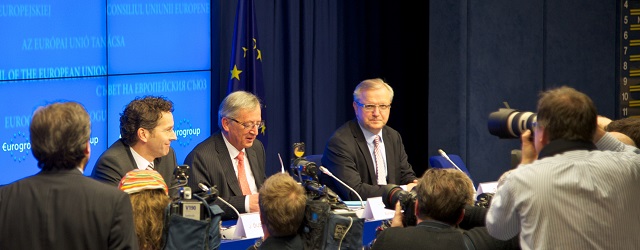What can Eurozone neighbours expect from Germany in Thursday’s Eurogroup meeting? A cap on financial assistance to tackle future banking turmoil, analysts in Madrid said this week to investors.
“No one will dare to ask for more,” Bankinter suggested in a market commentary note, “moreover now that the German government must cover help programmes due to the floods and taking into account that the country still is amid its pre-electoral battle ahead of September 22.”
The figure probably won’t surpass the €60 billion for future European banking rescue support to troubled entities and it would add to the sense of uncertainty the markets seem unable to get rid of because, unlike in the US, there is no European lender of last resort. Indeed, Bankia Bolsa explained that the markets are discounting the fact that “the European Central Bank will not use the same measures favoured by the Bank of Japan or the US Federal Reserve,” in a reference to a expansionary monetary policy many economists and politicians from European peripheral states demand.
In absence of the materialisation of ECB president Mario Draghi‘s “whatever is necessary”–almost a year ago–the timid optimism of the German investor mood index ZEW and a pick up of housing construction in the US appear to have become the only reasons against despair. But will it suffice? For some, perhaps it will: Spanish exports of goods increased in the last four months by 8%, and 17% in April.
Still, to compensate the news of a banking bailout limitation, the Eurogroup today may bring up a few tricks. Santander analysts mentioned in a research newsletter that the new draft for future capital aid could confirm bank deposits of up to €100,000 would be protected from bail-ins, together with non-guaranteed deposits of the same amount if they were made by individuals or small and medium size companies.
This point of the Eurogroup’s debate will surely be closely watch by those with deposits with Austria’s Hypo Alpe-Adria Bank International, which after receiving €2.2 billion from the public purse, struggles to survive. European commissioner Joaquín Almunia warned its restructuring plans fall short of what is needed and the prospects of a full liquidation rise as a feasible option.






Be the first to comment on "Future European banking rescue package limited at €60 billion"